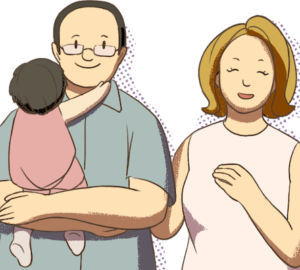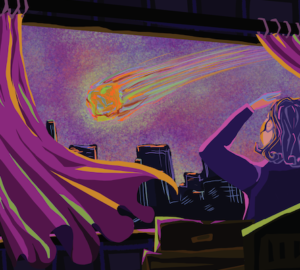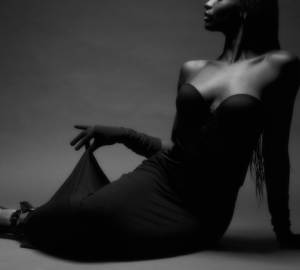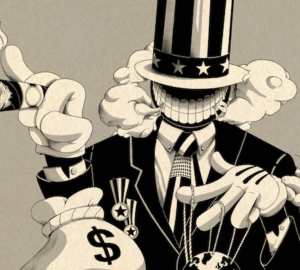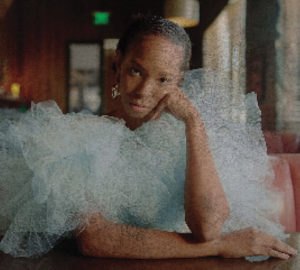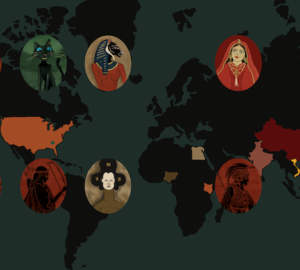Proclaim Your Unpopular Opinions
Everyone holds an unpopular opinion, but our culture of fear shouldn’t stop us from voicing them.
WRITTEN BY ALLISON BOLT
ILLUSTRATED BY JULIA YOON
It is easy to feel as if your opinion is unpopular because sometimes it is. Sometimes, more than half of America’s population will disagree with you and what you believe will not be supported by the majority of your peers. In this instance, it may feel as if the nation is glaring at you because your opinion is unpopular, but you are not alone. Unpopular opinions are prevalent when discussing the big issues, because answers to these topics are not clean cut, especially when politics are involved.
Furthermore, no one holds opinions that are exactly identical. Two people could agree that they are pro-choice when it comes to abortion but disagree on the specifics of organizations such as Planned Parenthood. They could disagree on tax reform but find comfort in each other as they complain while filing their own taxes. Or maybe they agree that there are too many mass shootings happening but disagree on gun control laws.
Despite the details, some opinions are simply statistically unpopular. If you’re pro-gun control but currently live in Georgia, a state where 40.3 percent of the population own guns according to ThoughtCo, or if you voted for Jill Stein in the 2016 election instead of Hillary Clinton or Donald Trump, you technically hold an unpopular opinion. As such, you may feel isolated or that everyone else is narrowing their eyes at you. Yet, no one agrees on everything 100 percent. If everyone agreed 100 percent, it would no longer be an opinion, but a fact. Everyone holds at least one unpopular opinion, but that doesn’t make the opinion wrong.
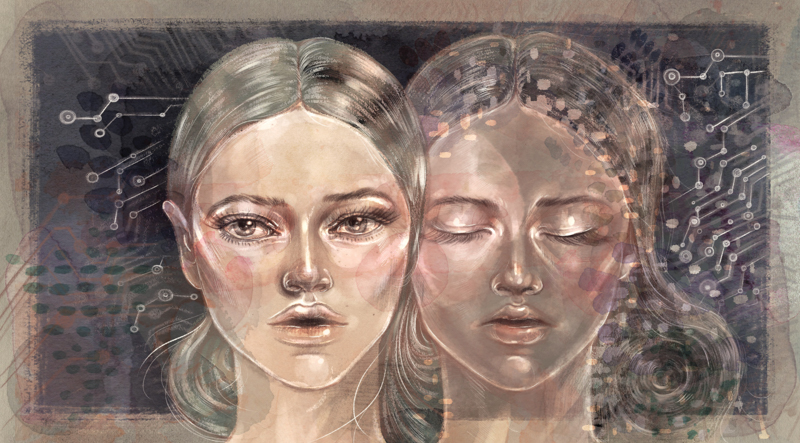 Presidential elections are known to stir up a multitude of opinions. The 2016 election revealed a plethora of voices; women marched into Washington wearing pink cat ears, riots erupted in the streets and President Donald Trump watched from the White House. According to a Gallup poll in November 2016 immediately following the election, the number of citizens who perceived the nation as “divided” skyrocketed to the highest it’s ever been at 77 percent.
Presidential elections are known to stir up a multitude of opinions. The 2016 election revealed a plethora of voices; women marched into Washington wearing pink cat ears, riots erupted in the streets and President Donald Trump watched from the White House. According to a Gallup poll in November 2016 immediately following the election, the number of citizens who perceived the nation as “divided” skyrocketed to the highest it’s ever been at 77 percent.
The 2016 presidential election pulled back the curtains and revealed an indefinitely divided America. The division is one that traces all the way back to the founding of our country through the Civil War. Race equality, gender equality, LGBTQIA equality and religion — this laundry list of monumental issues has led to a wide spectrum of opinions, including the unpopular ones, such as the 23 percent of Americans who currently do not see the nation as “divided.”
Either way, it is a fact that our nation is in a state of unrest.
We are constantly surrounded by conflict and we are afraid to discuss personal opinions that could lead to more conflict, especially if these opinions are unpopular. There are many possibilities as to why we are so afraid to publically share opinions, and most of them began far before the 2016 election. Maybe it’s because many of us belong to the generation that grew up through the post-9/11 panic and paranoia. Or maybe it’s because we grew up with news stories of mass shootings and riots in the streets playing in the background as we built Lego towers or completed homework. We were exposed to horror and tragedy at a young age. We grew up in this nation of peripheral terror and we were raised accordingly. We have become a culture of fear.
Discussing political opinions is no longer dinner party small talk. Rather, it is a conversation that could end relationships or result in strong, and possibly violent, reactions. We leave class and return home to our dorms and apartments, locking ourselves away in cages, cages that do not keep us inside, but keep others out. We avoid topics such as healthcare, the second amendment, political affiliation, climate change, abortion and police brutality between classes. We hide our phones when we get news story notifications amongst friends. We are often too afraid to publically voice our opinions, especially unpopular ones. We fear that our friends will disagree and that all at once we will feel ashamed of our opinion. We fear that an argument will erupt, our friendships will end, we will be looked down upon, everyone will roll their eyes at us or, worst case scenario, someone will become extremely angry and possibly violent. Thus, we avoid the conversations all together.
It is only natural that we congregate into groups of companions who share our opinions, or similar ones. Surrounding ourselves with agreeable people who hold common views saves us from encountering conflict. It is important to remember that the division in our nation is not new. It’s not as if fifty years ago Americans lived in a utopia where everyone agreed and no one had unpopular opinions. People have always disagreed and will always disagree, we just have more platforms now to express our opinions and Facebook feeds full of arguments. Anonymity on the internet offers an escape from this fear that we feel when voicing our opinions.
Social media, while not always anonymous, offers a protective barrier to hide behind. Voicing your opinion, even if it’s considered unpopular, has never been easier. Social media is like driving a car and feeling as if you’re in a protected bubble that enables you to honk the horn and scream, but outside of that car you still need to maintain a polite demeanor due to the fear of the other person’s reaction. Because a car, much like social media, offers a sense of protection for you to safely scream whatever it is that you are opinionated about. It offers comforting distance.
Each social media platform offers a distinctive way to share opinions. Instagram appeals to a visual audience who want to scroll through images and efficiently double tap the things they like and agree with. Facebook allows users to share friends posts both visual and written, as well as mark angry faces on opinionated posts you disagree with. Twitter is the most relevant platform for sharing opinions. 280 characters are all you have to craft your rant about the line at the grocery store, or a raw confession about your views on abortion or police brutality. Each time a person retweets your post, it reaffirms it and suddenly your opinion doesn’t seem so unpopular anymore. One retweet is all it takes to conquer the fear of putting your voice out there.
News broadcasts have even transformed into presidential Twitter updates thanks to the president of the United States choosing to voice his opinions on social media. Following his election into office, the 24/7 coverage of Trump’s Twitter account began with NBC reporting his tweet, “Just had a very open and successful presidential election. Now professional protesters, incited by the media, are protesting. Very unfair!” The president, only minutes into his term, chose to keep his distance and voice his opinion on social media against citizens who were bravely voicing their opinions in public.
Social media has affected the way we share our opinions, possibly in a negative way. It has provided a wall to hide behind, a safety blanket, protecting us from face to face interactions. Thus, our generation’s fear of sharing opinions in person has only increased. Yet unpopular opinions, conflict and debate will forever be present in our society because we are a society of humans who have the ability to think for ourselves, be individuals, and form our own opinions however unpopular they may be and luckily we live in a nation that allows us to voice them.
Freedom of speech is a privilege that not all humans have and we take it for granted everyday. It’s easy when we grow up in a country with free speech to get frustrated with all of the conflict it can cause. We often choose the simple fix of closing our ears, attempting to ignore politics and taking a break from our social media accounts. This is a nonproductive fear driven act that blatantly ignores the privilege of free speech. We often we sit back and wipe our hands clean of politics because there is too much conflict involved. This is not only lazy, it is throwing away all of the opportunities we have that would allow us to make a change, to put our opinions and ideas into action.
We must take advantage of our freedom by exercising our rights and raising our voices, not only on social media, but also publicly — even though someone is going to stand up and voice an opposing opinion because none of us will agree 100 percent. Depending on the person, they may argue with you or they may agree to disagree but either way it is OK. It is OK because you are an individual, they are an individual and no one shares identical opinions. Just because someone holds an opinion that you do not agree with, doesn’t mean that it is wrong. Keeping an open mind is the key to discussing differing ideas without destructive conflict.
Mass shootings, terrorist attacks, media profiting from conflict and tragedy, and fear will always be present in our society. We will continue to be afraid of the world around us and some opinions will always be considered unpopular because we will never live in a perfect world. Yet, we do live in a country that allows us the freedom of being an individual and voicing our unique opinions, protesting, and electing officials that we choose and believe will enact our ideas. With just a little bit of patience and understanding, the fear of discussing our unpopular opinions can slowly dissipate and we can take advantage of the power we hold but often do not pursue.

